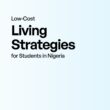Investing can often feel like a far-off goal, especially when you think it requires significant capital. But the truth is, you don’t need millions to begin your investment journey. This is because some investment platforms have now made it possible for you to start investing from where you are. With as little as ₦1,000, you can take your first step into the world of investing and begin building your financial future.
Starting small helps you overcome the fear of investing and builds confidence as you learn. Even with limited funds, you can take advantage of compounding, gain experience, and begin working toward your financial goals.
In this post, I will walk you through where to invest money in Nigeria, how to start investing with a small amount using the best investment platforms in Nigeria, the options available, and strategies to maximize your returns.
Steps to Start Investing with ₦1,000
1. Set Clear Financial Goals
Before investing, clarify your goals. Are you looking to grow wealth over time, save for a short-term goal, or learn the ropes of investing? Defining your objectives will help you decide where and how to invest.
- Long-term goal: Opt for stocks or ETFs.
- Short-term goal: Consider money market funds or high-yield savings.
2. Educate Yourself
Understanding the basics of investing is crucial. With ₦1,000, your margin for error might be smaller, so equip yourself with knowledge about investment types, risks, and returns. Investment apps like Trove Finance offer educational resources tailored to beginners.
Key concepts to understand:
- Diversification: Spreading your investment across multiple assets.
- Risk tolerance: Knowing how much risk you’re comfortable taking.
- Compound interest: The power of reinvesting your earnings.
3. Choose the Best Investment Platform
Several investment platforms in Nigeria allow you to start investing with low capital. These investment apps provide access to global and local investment opportunities, including stocks, ETFs, bonds, and mutual funds. An example of the best investment platform in Nigeria is the Trove app, which has low deposit requirements, affordable transaction fees, and a user-friendly interface.
4. Start with Fractional Shares
Fractional investing allows you to buy a fraction of a stock, making expensive stocks accessible. For instance, instead of buying a full share of a company like Amazon or Tesla, you can purchase a portion worth ₦1,000.
Benefits of fractional investing
- Diversify across multiple assets with minimal funds.
- Invest in high-value companies without waiting to save large amounts.
5. Explore Exchange-Traded Funds (ETFs)
ETFs pool money from investors to invest in a basket of assets like stocks, bonds, or commodities. They’re an excellent option for beginners because they offer diversification at a low cost.
Some of the advantages of ETFs include
- Lower risk than individual stocks.
- Professional management and oversight.
- Affordable for small-scale investors.
6. Invest in Mutual Funds
Mutual funds allow investors to pool their money, which is managed by professionals to generate returns. Many mutual funds in Nigeria accept contributions as low as ₦1,000, making them a great starting point.
Popular options:
- Stanbic IBTC Mutual Funds.
- FBN Fixed Income Fund.
Mutual funds often invest in bonds, equities, and other assets, offering diversification and steady returns.
Strategies to Maximize Your ₦1,000 Investment
1. Reinvest Your Returns
Even small returns add up over time. Reinvesting helps you harness the power of compounding, growing your portfolio faster.
2. Diversify Your Investments
Avoid putting all your money into one asset. Spread your ₦1,000 across different investment options to reduce risk.
3. Stay Consistent
Consistency is critical to growing your investment. Consider setting aside ₦1,000 monthly to build your portfolio over time.
4. Monitor Your Investments
Use the tools provided by your platform to track your portfolio’s performance. Adjust your strategy as you learn more about the market.
Risks to Consider when Investing in Stocks or ETFS
While investing can be rewarding, it comes with risks. Understand the potential downsides before committing your ₦1,000:
- Market volatility: Prices fluctuate, especially in stocks and ETFs.
- Platform fees: Ensure fees don’t erode your small investment.
- Inflation: Some investments might not keep up with inflation, reducing your purchasing power over time.
Benefits of Starting Small
1. Learn Without Fear
Investing ₦1,000 limits your potential loss, making it a safe way to learn and experiment.
2. Build a Habit
Starting small helps you develop the discipline of consistent investing, a crucial skill for long-term wealth creation.
3. Access to Global Markets
Investment platforms in Nigeria, like the Trove app, allow you to invest in global stocks, allowing you to own a piece of top companies worldwide, even with minimal funds.

Conclusion
Starting your investment journey with ₦1,000 might seem insignificant, but it’s a step toward financial independence. By leveraging modern tools, fractional shares, and diversified options like ETFs and mutual funds, you can create a solid foundation for your financial future. Remember, it’s not about how much you start with—it’s about starting at all. So, take that first step today and let your money work for you.





